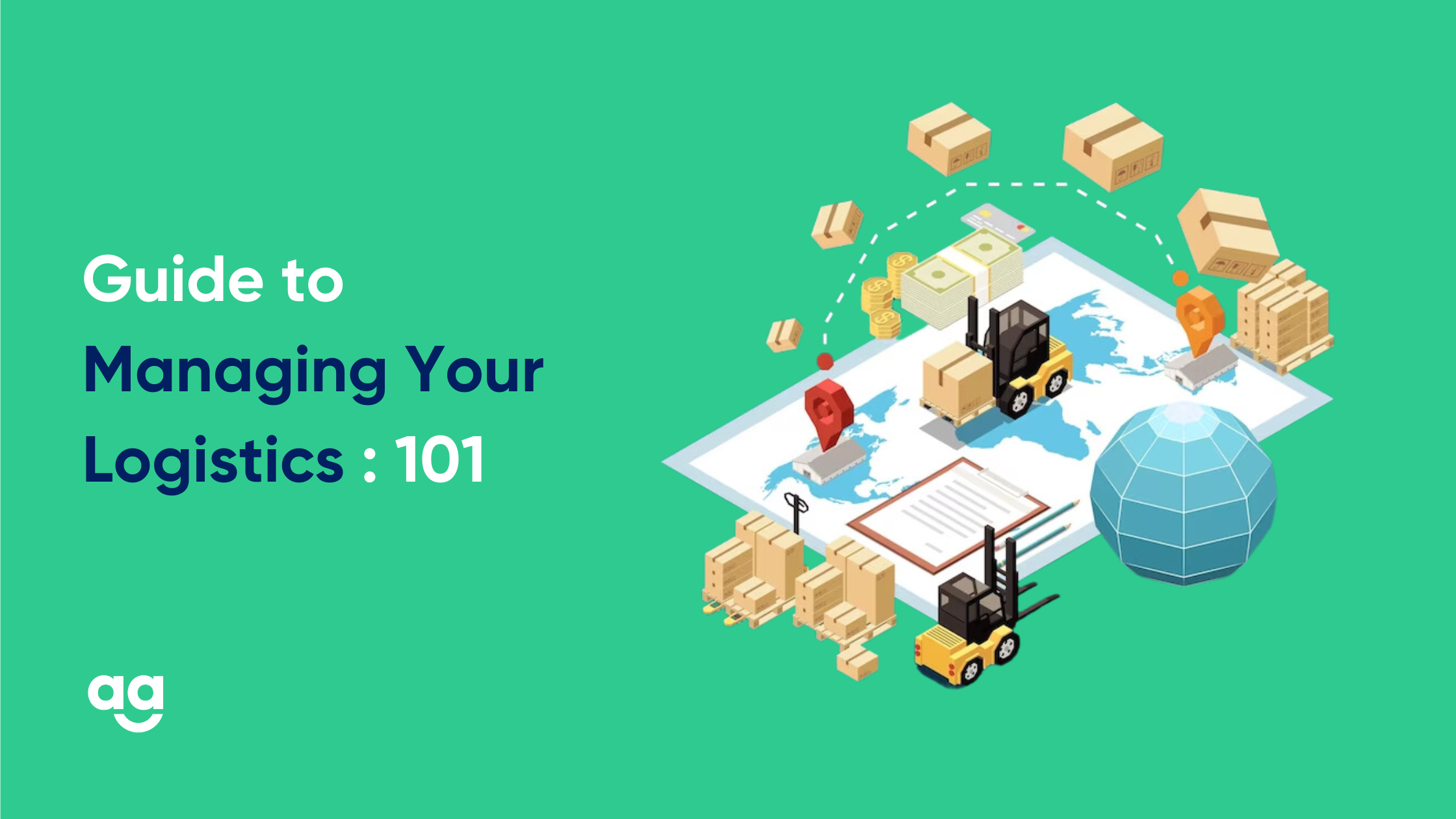Introduction
Effective logistics management is a key component of any successful business. It involves the planning, coordination, and execution of the movement and storage of goods, materials, and products throughout the supply chain.
Logistics management can be a complex and challenging task, but there are several strategies and tips that businesses can use to improve their logistics operations and enhance their overall efficiency and effectiveness.
In this blog post, we discuss 8 effective tips to manage your logistics, which will help your business streamline its operations, improve its customer service, and increase profitability.
8 Tips for Logistics Management
In order to effectively manage logistics, businesses must be equipped with the right strategies and tools. Here are eight tips for logistics management that can help you optimize your business operations and achieve greater efficiency.
Optimize Your Warehouse Layout
One of the most important aspects of logistics management is warehouse management. To maximize the efficiency of your warehouse, it is essential to optimize your warehouse layout. This involves:
– organizing your inventory in a logical and efficient manner,
– ensuring that your most frequently accessed items are easily accessible,
– minimizing the distance that your employees need to travel to pick and pack orders.You can also use technology such as barcode scanning, automation, and real-time tracking to further streamline your warehouse operations and reduce scope for errors.
Use Data Analytics
Data analytics is a powerful tool that can help you optimize your logistics operations by providing insights into your supply chain performance. By analyzing your data, you can identify trends, patterns, and inefficiencies, which can then be addressed through process improvements and automation.
For instance, data analytics can help you identify which products are selling the most and when they are selling, enabling you to adjust your inventory levels and reorder points accordingly. Furthermore, you can also use data analytics to monitor your transportation and logistics costs, to identify areas where you can reduce expenses without compromising on quality.
Implement a Transportation Management System (TMS)
A transportation management system (TMS) is a software solution that helps businesses manage their transportation operations more efficiently. TMS solutions can help you optimize your transportation routes, track your shipments in real-time, and reduce your transportation costs by identifying the most cost-effective carriers and shipping methods.
Partner with a 3PL Provider
Partnering with a third-party logistics (3PL) provider can help you reduce your logistics costs while improving your overall efficiency and service quality. How, you ask?
A 3PL provider can handle your warehousing, transportation, and other logistics tasks, freeing up your time and resources to focus on your core business activities.
In addition to cost savings, working with a 3PL provider can also help you access new markets and expand your business globally. This is because 3PL providers have established networks and partnerships around the world.
Utilize Lean Management Principles
Lean management principles are a set of principles that focus on reducing waste and maximizing efficiency in business operations. By applying lean principles to your logistics operations, you can identify areas from where you can eliminate waste, streamline your processes, and reduce costs.
Continuous improvement, value stream mapping, and just-in-time (JIT) inventory management are some key lean principles that can be applied to logistics management.
Train and Educate Your Employees
Your employees are an essential part of your logistics operations, and investing in their training and education can help you improve your efficiency and service quality. Providing your employees with regular training and education can help them stay up-to-date with the latest industry trends and best practices. Thus, enabling them to perform their jobs more effectively.
In addition to technical training, you can also provide your employees with soft skills training, such as communication and problem-solving, to help them interact better with customers and suppliers.
Embrace Technology
Technology is a critical component of modern logistics management. Businesses that embrace technology can gain a significant competitive advantage. There are many different types of technology that can be used to optimize logistics operations, including transportation management systems (TMS), warehouse management systems (WMS), and inventory management systems (IMS).
By implementing these technologies, businesses can automate many logistics processes, such as inventory tracking, order management, and shipping, which can help them reduce errors, increase efficiency, and improve their overall service quality.
Monitor Key Performance Indicators (KPIs)
Finally, monitoring key performance indicators (KPIs) is essential for effective logistics management. KPIs are quantifiable metrics that measure the performance of your logistics operations, such as on-time delivery, order accuracy, and inventory turnover.
By regularly monitoring these KPIs, businesses can identify areas where they need to improve and take corrective action to address any issues. KPIs can also help businesses set goals and track their progress towards achieving them, helping them stay focused on continuous improvement.
Wrapping Up
Logistics management plays a crucial role in the success of every business. It ensures that materials and products flow smoothly through the supply chain, enabling companies to deliver them to its customers in a timely and cost-effective manner.
Advances in technology have transformed the logistics industry, enabling companies to track and optimize their supply chain operations more efficiently. From automation and predictive analytics to blockchain and the Internet of Things (IoT), technology has greatly improved the accuracy and efficiency of logistics management.
As global trade continues to grow and technology continues to evolve, it is likely that logistics management will continue to play a vital role in the success of businesses around the world. Companies that can adapt to these changes and find ways to optimize their supply chains will have a competitive advantage in the marketplace.







 Shipping
Shipping







